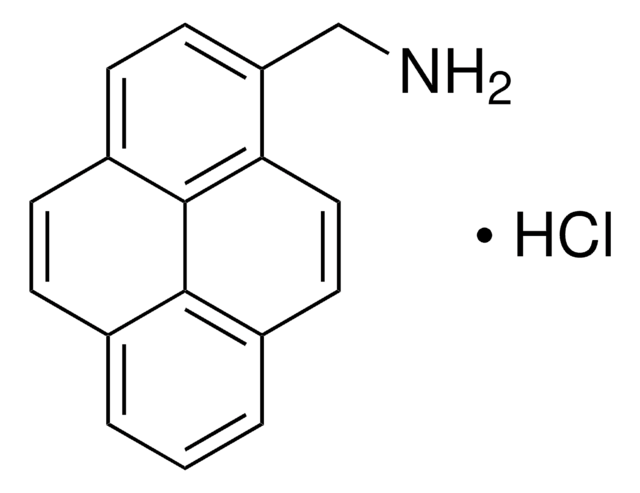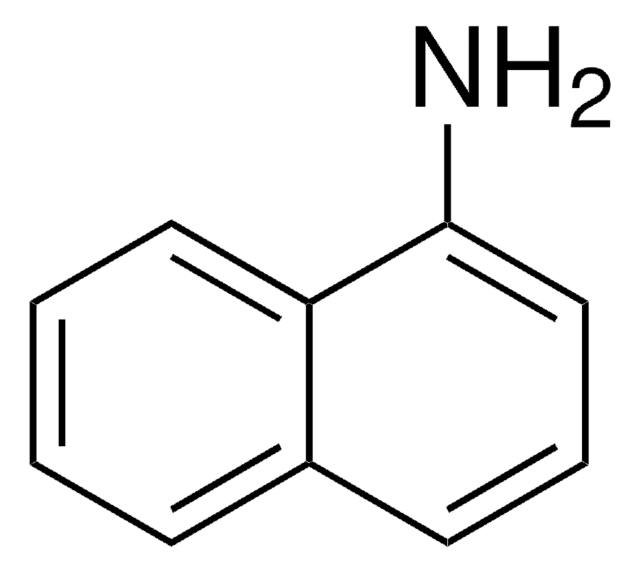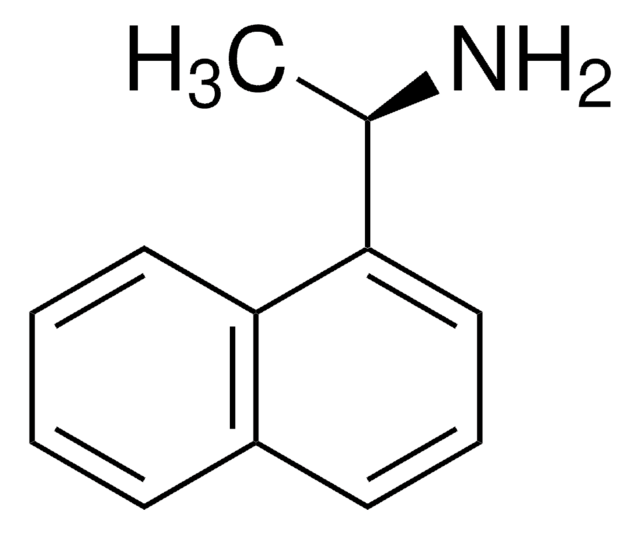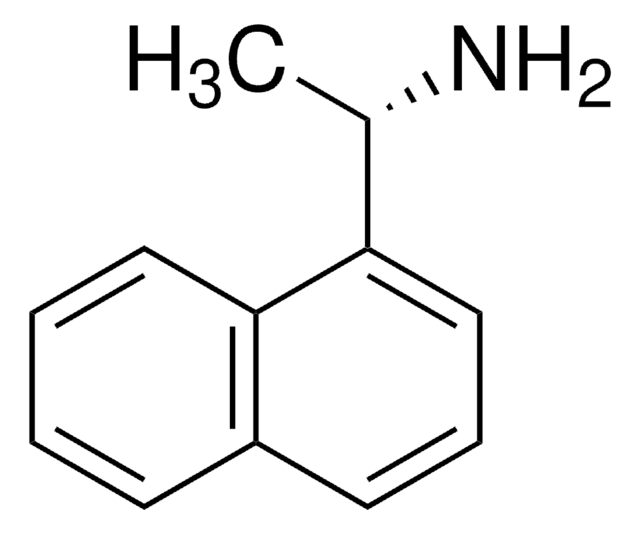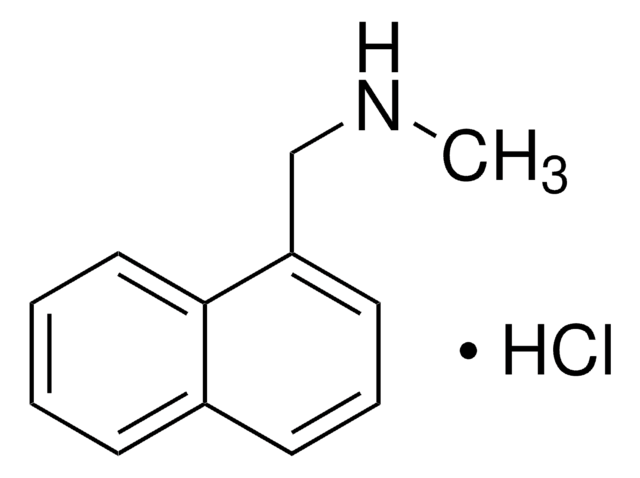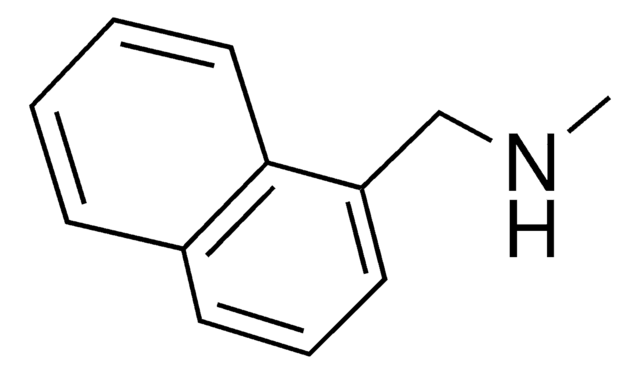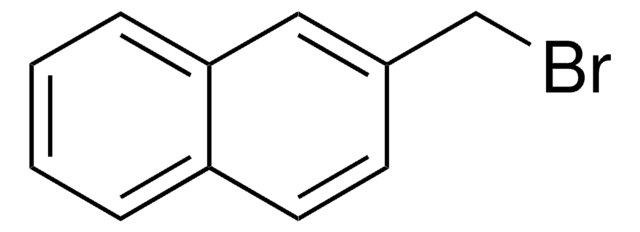127035
1-Naphthylmethylamine
97%
Synonym(s):
1-(Aminomethyl)naphthalene, 1-Naphthalenemethylamine
About This Item
Recommended Products
Quality Level
Assay
97%
form
liquid
refractive index
n20/D 1.643 (lit.)
bp
290-293 °C (lit.)
density
1.073 g/mL at 25 °C (lit.)
functional group
amine
SMILES string
NCc1cccc2ccccc12
InChI
1S/C11H11N/c12-8-10-6-3-5-9-4-1-2-7-11(9)10/h1-7H,8,12H2
InChI key
NVSYANRBXPURRQ-UHFFFAOYSA-N
Gene Information
rat ... Adra2a(25083)
Looking for similar products? Visit Product Comparison Guide
General description
1-Naphthylmethylamine increases the induced circular dichroism (ICD) magnitude exhibited by Poly[(4-carboxyphenyl)acetylene]. It forms carbamate by reacting with monomethoxypoly(ethylene glycol) succinimido carbonate (mPEG-SC).
Application
- Photoluminescence Modulation: A study demonstrates the modulation of photoluminescence in Ruddlesden-Popper perovskite using phase distribution regulation, revealing potential applications in optoelectronic devices. 1-Naphthylmethylamine plays a critical role in enhancing the material properties for improved device performance (Zhao et al., 2023).
- Perovskite Light-Emitting Diodes: Research highlights the dimensional tailoring of quantum wells through ultrahigh vacuum annealing to enhance the efficiency of perovskite light-emitting diodes. This process utilizes 1-Naphthylmethylamine to improve the interlayer electronic properties and device stability, contributing significantly to advancements in LED technology (Yu et al., 2020).
Signal Word
Warning
Hazard Statements
Precautionary Statements
Hazard Classifications
Eye Irrit. 2 - Skin Irrit. 2 - STOT SE 3
Target Organs
Respiratory system
Storage Class Code
10 - Combustible liquids
WGK
WGK 3
Flash Point(F)
235.4 °F - closed cup
Flash Point(C)
113 °C - closed cup
Personal Protective Equipment
Choose from one of the most recent versions:
Already Own This Product?
Find documentation for the products that you have recently purchased in the Document Library.
Customers Also Viewed
Our team of scientists has experience in all areas of research including Life Science, Material Science, Chemical Synthesis, Chromatography, Analytical and many others.
Contact Technical Service
